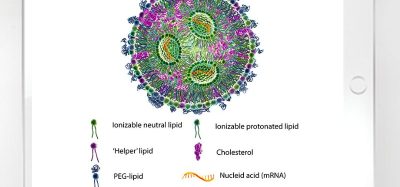FDA collaboration uses Organs-on-Chips to improve drug development
Posted: 26 October 2017 | Dr Zara Kassam (European Pharmaceutical Review) | No comments yet
FDA collaboration will characterise the performance of Organs-on-Chips as a platform for potential use in drug development and regulatory evaluation…


CN Bio Innovations Limited has announced today that it has entered into a Research Collaboration Agreement with the US Food and Drug Administration’s (FDA) Center for Drug Evaluation and Research
The collaboration will characterise the performance of CN Bio’s Organs-on-Chips as a platform for potential use in drug development and regulatory evaluation, including safety testing prior to new drugs entering clinical trials.
This landmark collaborative deal outlines how we will work with FDA to build an evidence base detailing how Organs-on-Chips can improve the drug development process
FDA scientists will assess the use of the devices to provide precise data about how human cells and organs interact with new drugs, and their ability to accurately predict the success of drugs prior to human clinical trials.
Chief Executive Officer of CN Bio, Dr Emma Sceats said: “This landmark collaborative deal outlines how we will work with FDA to build an evidence base detailing how Organs-on-Chips can improve the drug development process. Our aim is to create a step change in the speed and accuracy of tests which can predict the success of new drug candidates. We will work with FDA to compare Organs-on-Chips against current preclinical testing methods.”
The aim is for this collaboration to contribute toward the development of industry standards and best practices for using Organs-on-Chips in drug development.
The Organs-on-Chips devices are laptop-sized, which enable human cells to be cultured so that they mimic the structure and function of human organs and tissues. Linking two or more of the miniature Organs-on-Chips enables scientists to test the systemic effects of drugs and other chemicals on living human cells and tissue-like structures in the lab.
The FDA scientists will investigate drug metabolism, toxicity and drug-drug interactions as well as multi-organ systems.
Drug companies seeking to sell a drug in the United States must first test it and send evidence to the FDA that the drug will be safe and effective for patients.
This collaboration fits with FDA’s regulatory science efforts to advance the science of developing new tools, standards, and approaches to assess the safety, efficacy, quality, and performance of new therapeutics.
Although drug safety is carefully assessed and monitored throughout the drug development process, unexpected adverse events that raise concerns about overall product safety may be observed in late-stage clinical trials or the following approval. Liver toxicity is one of the most common causes of adverse side effects, preventing drugs from successfully completing clinical trials or leading to their withdrawal from the marketplace. FDA’s collaboration with CN Bio will focus on evaluating data, systems and models to predict liver toxicity and drug safety.
The FDA’s feedback will be used to further optimise devices for preclinical drug development and other testing applications.
Related topics
Clinical Development, Clinical Trials, Drug Delivery Systems, Drug Development, Drug Targets, Lab-on-a-chip
Related organisations
CN Bio Innovations Limited, U.S. Food and Drug Administration (FDA)









